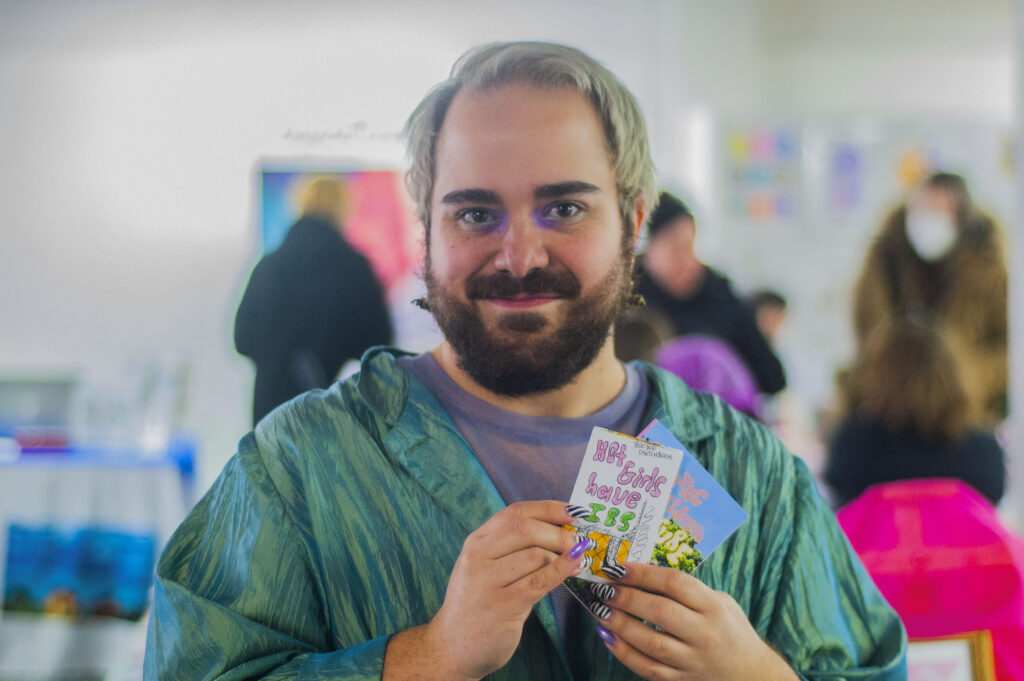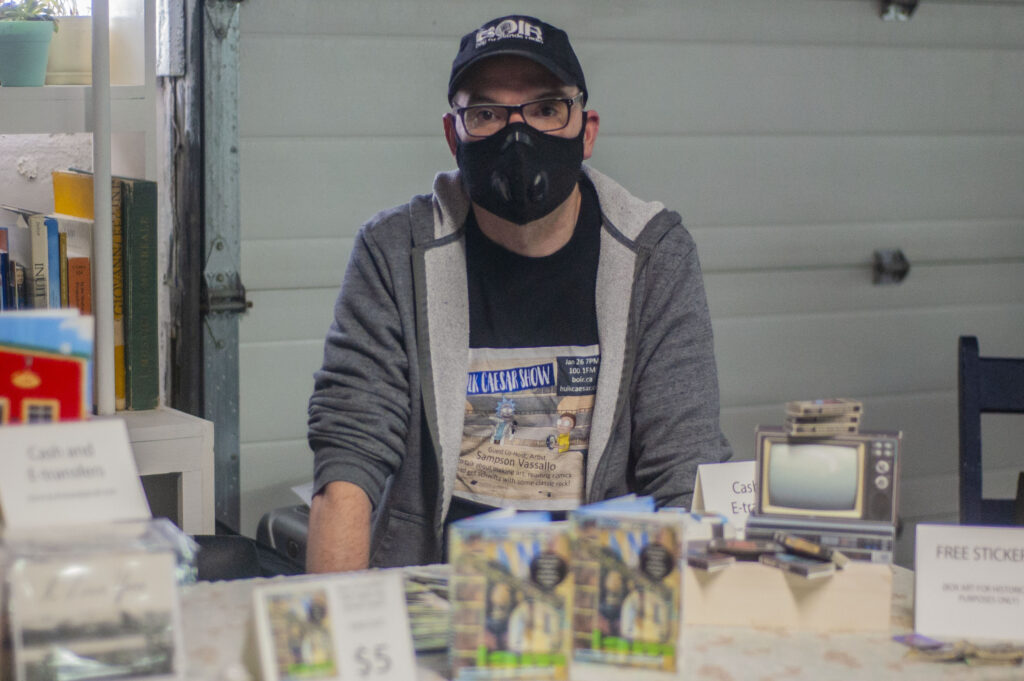Zinesters say the medium is an accessible and approachable way to engage with the arts
Chad Feehan
Kicker

The minutiae of everyday life was recently on display at Hold Fast Zines at the Eastern Edge Gallery.
Short for magazine, zines are low-budget, accessible, do-it-yourself publications, often utilizing one piece of paper folded like a pamphlet.
Popular with different subcultures in various decades like mid-century science-fiction writers and punk-rockers of the 1970s, zines have been an inexpensive way for people to distribute various ideas ranging from the political, artistic realm and personal stories.
Local artist Brandon Clarke, who often goes by the alias “BooBoo”, chose their experience with irritable bowel syndrome as the topic for their first foray into zine-making.
“I don’t take anything in life too seriously, especially when it comes to my art,” said Clarke. “It’s all about poking fun at the everyday perils of life.”
The format of the zine, which is paper folded into six pages of humorously drawn relatable situations, allows Clarke to bring other people in on the fun.
“I kind of just do it for other people who have the same experiences … we can relate about this issue and laugh about it.”
“Who is keeping this history? Are we talking to the people that remember it while they are here?”
Elijah Martel
Elijah Martel, festival and communications co-ordinator for Hold Fast, sees zine-making as “cheap and imperfect by nature,” and an approachable, interactive way to engage with would-be participants of the arts.
“How does it change me to share that and how does it change other people to receive the thing that’s shared?” said Martel about the zine-sharing process.
Through telling personal stories, the public is left with physical records of local history that may otherwise go overlooked.
“Who is keeping this history? Are we talking to the people that remember it while they are here?” said Martel.

Steve Sharpe, local artist and radio host, offered snippets of his 1996 high school agenda in zine format. Inside features comments on news items of the day back in 1996, such as the O.J. Simpson trial, and a record of his attempt – and failure – to pass his driver’s permit.
After spending a summer in British Columbia halfway through high school, Sharpe returned to Newfoundland. He brought with him “a new perspective on a lot of things” and began work on what would become “a collection of what happened that year.
“I think mine really resonated with young people,” said Sharpe. “You can see when they are looking through it, it’s like they’re looking at alien material.”
Similarly, Sharpe looks through the material as though it was written by a different person, given the decades between him and the time of it’s writing, and the differences between society then and now.
“I don’t really think of it as my personal information … more so a snapshot of everybody and how the times were,” said Sharpe. “So much of life was a scheduled thing, and that’s why agendas were big … now it’s when you want it where you want it.”
In Clarke’s case, the syndrome is not quite casual conversation with its talk of antacids, laxatives and body phenomena, but the zine may present the chance to open up the dialogue to talk about and laugh at.
“IBS can be a thing…normalize talking about it,” said Clarke.
Sharpe believes that zines can also normalize art. He theorizes people may be intimidated by lofty preconceptions of what art is, but assures anyone overthinking things that it’s just a matter of putting what you’re thinking on paper.
“Everybody benefits from it … it’s kind of cathartic to talk about something you might not normally talk about, and then somebody else reads it and its cathartic for them.”
Zine-making can fulfill the innate impulse to create, says Martel. Watching people light up with satisfaction when looking upon a completed piece has been a great source of joy for them.
“It makes me want to cry every time.”

Be the first to comment